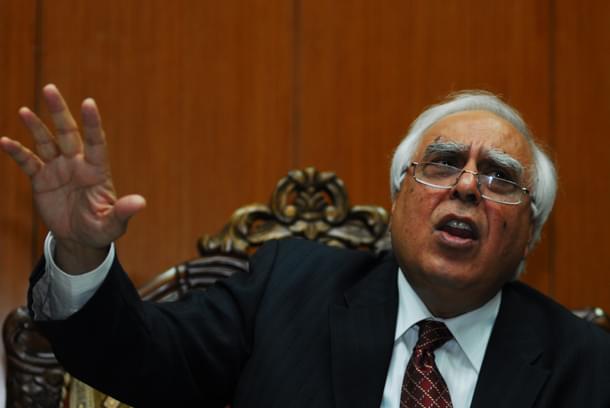News Brief
Assam Was Originally Part Of Myanmar: Kapil Sibal Argues Supporting Illegal Immigrants In Supreme Court
Nishtha Anushree
Dec 08, 2023, 07:41 PM | Updated 07:41 PM IST
Save & read from anywhere!
Bookmark stories for easy access on any device or the Swarajya app.


During hearing of Assam illegal immigrants case in the Supreme Court, Senior Advocate Kapil Sibal representing the respondents argued that the intricate task of tracking population shifts throughout history, spotlighting the historical progression of Assam from once being a part of Myanmar to later being governed under British rule and its post-partition affiliation with East Bengal.
According to India Today, Sibal highlighted the integration of the Bengali population in Assam, framing this integration within the context of historical accounts.
"History is deeply intertwined with the movement and migration of people and populations, a concept that cannot be accurately charted. This is clearly demonstrated when examining the history of Assam, as it is virtually impossible to determine the exact timeline of arrivals," he stated during the proceedings.
"Assam was originally a part of Myanmar. It was way back in 1824 after the British conquered part of the territory that a treaty was entered into by which Assam was handed over to the British. You can imagine the kind of movement of people that might have taken place in the context of the then British Empire," he elaborated.
The essence of the dispute is based on the viewpoint of native groups in Assam. They contend that Section 6A has sanctioned the influx of unauthorised immigrants from Bangladesh, which has markedly influenced the demographic and cultural composition of the state.
The Supreme Court's Constitution Bench, headed by CJI Chandrachud and including Justices AS Bopanna, MM Sundresh, JB Pardiwala, and Manoj Misra, is tasked with assessing the constitutional legitimacy of Section 6A. Their analysis of this clause could significantly impact the socio-political environment in Assam.
In order to strengthen his position, Sibal used his family's personal experience of displacement during the partition as an example, emphasising the basic rights of all individuals, particularly those of Bengali ethnicity, to migrate within the country as they wish. He passionately contested the claim that these population shifts have disturbed the cultural core of Assam.
After hearing all arguments, the Supreme Court on Thursday (7 December) ordered the Union Government to supply comprehensive data on the influx of illegal immigrants into Assam and other northeastern states post 25 March 1971. This instruction is a component of the thorough review process related to the controversial Section 6A, a clause which has ignited intense discussions among different factions within Assam.
Nishtha Anushree is Senior Sub-editor at Swarajya. She tweets at @nishthaanushree.





